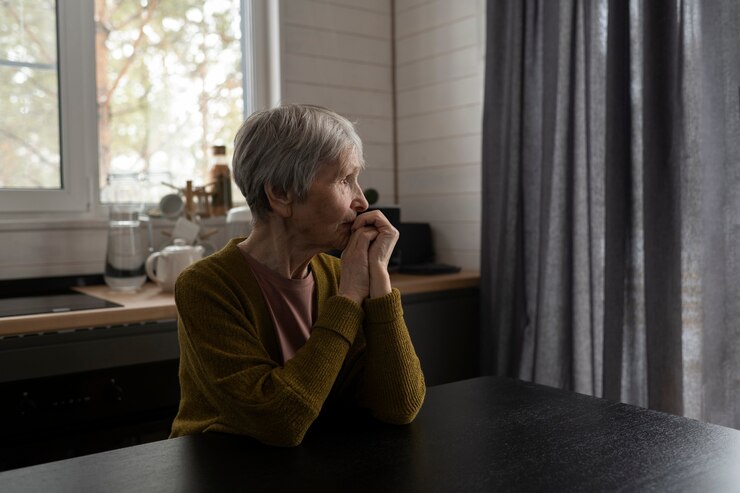Mental Health: Coping with Loneliness and Isolation

Loneliness and isolation are common experiences that can impact anyone, but they are particularly prevalent among seniors. As we age, various life changes—such as retirement, the loss of loved ones, or physical limitations—can lead to feelings of isolation and loneliness. Understanding and addressing these feelings is crucial for maintaining mental health and overall well-being.
In this post, we’ll explore the challenges of loneliness and isolation, their effects on mental health, and practical coping strategies. By addressing loneliness head-on and adopting effective coping mechanisms, seniors can enhance their quality of life and foster meaningful connections.
Understanding Loneliness and Isolation

Loneliness is a subjective feeling of being alone or disconnected, even if others surround one. It is a deep sense of disconnection from meaningful social interactions. Isolation, conversely, refers to the objective state of being physically alone or lacking social contact. While loneliness and isolation often go hand-in-hand, they are distinct experiences that can affect individuals differently.
For many seniors, the transition to retirement, loss of a spouse or friends, and decreased mobility can contribute to both loneliness and isolation. These changes can disrupt established social routines for seniors and lead to a sense of disconnection. Moreover, the societal changes brought about by technology and shifting social norms can sometimes exacerbate feelings of loneliness among seniors.
The Impact on Mental Health

The effects of loneliness and isolation on mental health are profound. Research has shown that prolonged loneliness can increase the risk of various mental health issues, including depression, anxiety, and cognitive decline. The lack of social interaction and support can lead to a decline in overall emotional well-being.
- Depression and Anxiety: Loneliness can be a significant risk factor for depression and anxiety. Feelings of sadness, hopelessness, and worthlessness often accompany loneliness. The absence of social support can make it difficult for individuals to cope with stress and negative emotions, leading to heightened feelings of anxiety and depression.
- Cognitive Decline: There is evidence suggesting that chronic loneliness can accelerate cognitive decline. The lack of mental stimulation and social interaction can contribute to memory problems and a decline in cognitive functions. Engaging in meaningful social activities is crucial for maintaining cognitive health.
- Physical Health: Loneliness and isolation can also have physical health consequences. Research has linked chronic loneliness to increased risks of cardiovascular disease, weakened immune function, and poorer overall health outcomes. The mind-body connection highlights the importance of addressing mental well-being for overall health.
Strategies for Coping with Loneliness and Isolation

Addressing loneliness and isolation requires a proactive approach. Here are some practical strategies that seniors can use to combat these feelings and improve their mental health:
- Cultivate Social Connections: Building and maintaining social connections is essential for combating loneliness. Engaging in activities that involve interaction with others, such as joining clubs, attending community events, or participating in volunteer work, can provide a sense of belonging and purpose. Social activities offer opportunities to meet new people and strengthen existing relationships.
- Utilize Technology: Technology can be a powerful tool for staying connected with others. Video calls, social media, and online forums allow seniors to maintain contact with friends and family, even if they are physically distant. Using technology effectively can help bridge the gap between in-person interactions and virtual connections.
- Seek Support: For those struggling with deep-seated feelings of loneliness or mental health issues, seeking professional support can be beneficial. Mental health professionals, such as therapists or counselors, can provide guidance and support in managing emotions and developing coping strategies. Support groups, both in-person and online, can also offer a sense of community and shared experience.
- Engage in Meaningful Activities: Participating in hobbies and activities that bring joy and fulfillment can help reduce feelings of loneliness. Engaging in activities such as gardening, painting, reading, or exercising can provide a sense of accomplishment and purpose. Finding meaningful ways to spend time can also offer opportunities to connect with others with similar interests.
- Maintain a Routine: Establishing a daily routine can provide structure and stability, helping to alleviate feelings of aimlessness or boredom. A routine that includes regular social interactions, physical activity, and personal interests can contribute to a more balanced and fulfilling life.
- Practice Self-Care: Caring for physical and emotional needs is crucial for mental well-being. Prioritizing self-care activities, such as exercise, healthy eating, and relaxation techniques, can help manage stress and improve overall mood. Mindfulness and meditation can also provide tools for managing negative emotions and fostering a sense of inner peace.
- Volunteer and Give Back: Volunteering is a powerful way to connect with others and contribute to the community. Helping others can provide a sense of purpose and create opportunities for social interaction. Many organizations welcome the involvement of seniors, and volunteering can lead to new friendships and a stronger sense of community.
Building a Supportive Community

Creating a supportive community fosters environments where seniors can thrive and feel connected. Community programs and initiatives that promote social engagement and mental well-being are crucial. Local organizations, senior centers, and community groups can offer resources, activities, and support tailored to seniors’ needs.
Additionally, raising awareness about loneliness and isolation can help reduce stigma and encourage more inclusive and supportive communities. We can work towards a more empathetic and connected society by addressing these challenges openly and creating opportunities for connection.
Conclusion
Coping with loneliness and isolation is a significant aspect of maintaining mental health, particularly for seniors. Understanding the impact of these experiences on mental well-being and adopting practical strategies for connection and self-care can make a meaningful difference in enhancing quality of life.
By cultivating social connections, utilizing technology, seeking support, and engaging in meaningful activities, seniors can combat feelings of loneliness and build a more fulfilling and connected life. Creating supportive communities and raising awareness about these issues can also help foster environments where everyone feels valued and connected.
Addressing loneliness and isolation requires a holistic approach that considers both emotional and practical aspects. With the right strategies and support, seniors can navigate these challenges and enjoy a richer, more connected life.





